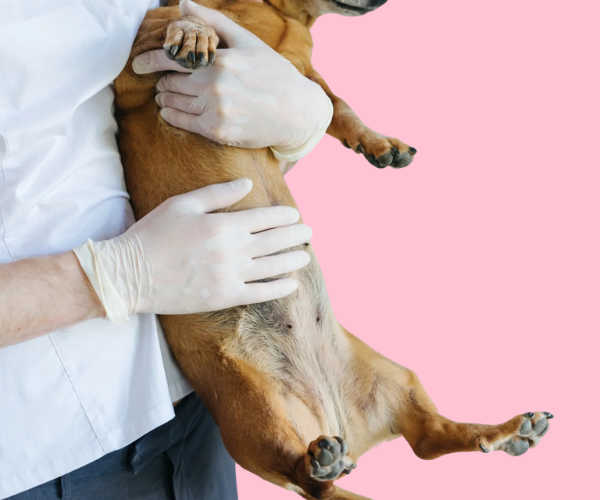Introduction
Every pet owner has experienced moments of frustration and impatience when dealing with their pets’ naughty behavior. But what happens when a moment of frustration leads to a loss of trust? If you’ve found yourself thinking, “I spanked my puppy and now she’s scared of me,” know that this isn’t an unsolvable situation. This article will provide actionable strategies to heal your relationship and regain your puppy’s trust, focusing on understanding your puppy’s fear, the implications of physical punishment, and ways to build a better bond.

Understanding Your Puppy’s Fear
Identifying fear in your puppy is the first step to addressing the issue. The fear is usually evident through different behavioral changes. Renowned animal behaviorist, Patricia McConnell, explains that dogs can show fear through avoidance behavior, submissive urination, or signs of stress like excessive yawning or licking. Suppose your puppy is demonstrating any of these signs around you, especially after a spanking incident. In that case, it’s an indication that she is scared and the trust between you two has been affected.
The Consequences of Physical Punishment
In the heat of the moment, you might resort to physical punishment, but it’s essential to understand its implications. The American Veterinary Society of Animal Behavior (AVSAB) firmly posits that physical punishment can lead to increased fear and aggression, even if it momentarily suppresses unwanted behavior. As psychologist and canine researcher Stanley Coren, Ph.D., explains in his book ‘How Dogs Think,’ dogs do not understand the concept of punishment as humans do. To them, physical punishments may just be perceived as threats, escalating their fear and potentially leading to aggressive responses.
Apologizing to Your Puppy
While puppies may not understand our words, they are incredibly receptive to our actions and energy. If you’ve spanked your puppy and are now dealing with the repercussions, it’s important to show them through your actions that you mean no harm. Maintain a calm and patient demeanor around your puppy. Dogs live in the present, so there’s a good chance that with consistent, non-threatening behavior, your puppy will start to feel safe around you again.
Positive Reinforcement Training
One of the most effective methods to rebuild trust and correct behavior is through positive reinforcement training. A study published in the Journal of Veterinary Behavior highlighted that positive reinforcement enhances the dog-owner relationship and is more effective in promoting desired behaviors compared to punishment-based methods. Positive reinforcement involves rewarding good behavior like sitting, coming when called, or going potty outside, with treats, praise, or petting. This approach aims to make your puppy associate these actions with positive outcomes, encouraging them to repeat these behaviors in the future.
Patience and Consistency
Mending the broken bond with your puppy won’t happen overnight. Victoria Stilwell, a notable dog training expert, emphasizes that patience and consistency are key when it comes to training and rebuilding trust. It’s essential to understand that rebuilding trust is a gradual process. Each positive interaction with your puppy is a step towards healing the relationship.
Seeking Professional Help
If your relationship with your puppy doesn’t seem to be improving despite your best efforts, it might be time to seek professional help. A certified dog behaviorist or trainer can provide tailored strategies to help rebuild trust. As Dr. Ian Dunbar, a leading figure in the dog behavior field, suggests, professionals can help identify subtle cues in a dog’s behavior and offer adjustments to your approach that can aid in mending the bond.
Prevention of Future Incidents
Preventing future incidents involves understanding your puppy’s behavior, acknowledging your reactions, and using non-punitive discipline strategies. Karen Pryor, a renowned animal behaviorist, suggests redirection and time-outs as effective alternatives. For instance, if your puppy is chewing on a shoe, redirect them to a chew toy. If they’re getting overly boisterous, a brief time-out can help them calm down. These techniques ensure discipline without causing fear or anxiety.
- Can Lighter Fluid Kill a Dog? [Advice]
- Can Dogs Drink V8? [Detailed Guide]
- Why Is My Dog Afraid of Flies? [Guide]
Conclusion
It can be distressing to realize “I spanked my puppy and now she’s scared of me.” However, with patience, understanding, and consistent positive reinforcement, you can heal your relationship. This journey may be challenging, but the reward—a trusting, loving bond with your puppy—makes all the effort worthwhile.
If you’ve faced a similar situation and successfully rebuilt trust with your puppy, we invite you to share your story. Your experiences could provide valuable guidance to others facing the same predicament. For further resources on positive reinforcement training and understanding canine behavior, check out our comprehensive guides [link to guides]. We’re here to support you on this journey of rebuilding trust with your furry friend.

Doctor of Veterinary Medicine (D.V.M.) at Nation Taiwan University,Master of Science (M.S.) in Biomedical Engineering at National Taiwan University of Science and Technology




